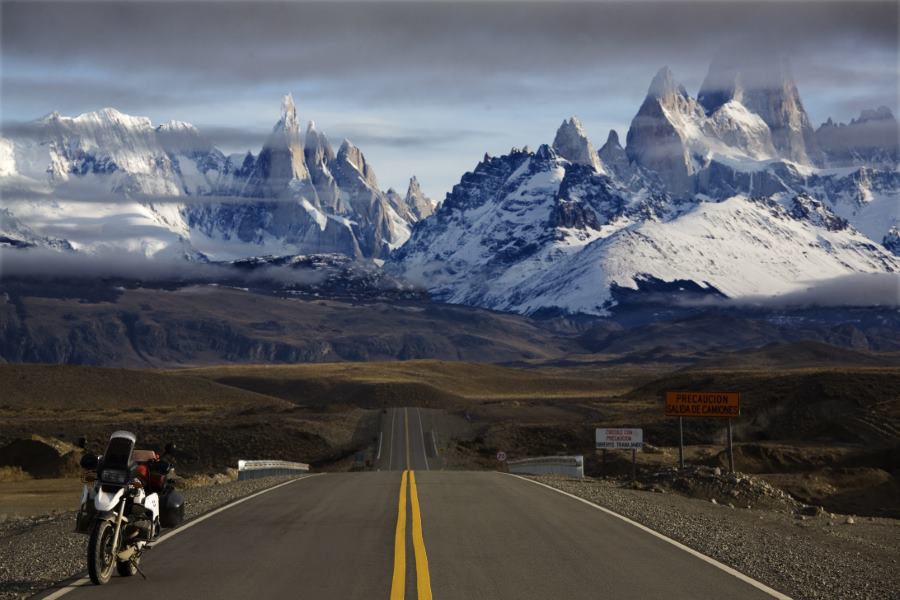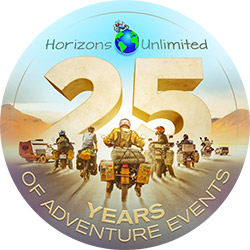In December of 2010, I floated the idea of riding around the world on motorbikes past my wife.
Fun, excitement, the open road, oh, and crooked border agents, rain and stifling heat, and “It’s gonna cost how much?!?” After some discussion and basic research, we decided that it was a dumb idea. We had recently completed a nearly 9 month backpacking trip in SE Asia and were getting antsy to go somewhere again, but where? We settled on backpacking around India and then revisiting our favorite places in SE Asia with the idea of finding a place we liked and settling in to teach English for a few years. Plan decided, we started doing the research but never could get really excited about it. No other plan had the excitement, challenge, or potential epic nature of the motorbike trip. So in the end of May, we once again returned to the RTW idea, but with a twist.
We would do it on underbones. We were, of course, inspired by nathanthepostman and Dabinche and our own travels through SE Asia. We had rented scooters and underbones in Thailand, Cambodia, Laos and Indonesia and had enjoyed the slower pace that they enforced. We’ve found that 35 mph is the perfect pace for much of the developing world. Parts are widely available, mechanics know how to work on them, tires are easily available, and we wouldn’t look like invaders from another planet. They are also inexpensive (better for Carnet) and lightweight (better if they decide to take a nap or need to be loaded in a boat). We also chose underbones for more personal reasons. We had considered going 2-up on my V-strom, but Re (my wife) is too small (and short) to ride it solo if I was ever unable to. So we looked at taking two bikes. Most of the advice suggests taking identical bikes as to only have to carry one set of spares and tools. So what then? We considered CRF-230s and XT-250s but finally settled on underbones for the reasons mentioned above.
So which underbone? Initially I had thought of the Honda CT-110s, but eventually settled on the mighty SYM Symba! Our local dealer was having a sale on Symbas ($1999 each) and they were about the same price as a good CT-110 but with the advantage of being 30 years newer. Some basic research into the Symbas showed that they are (probably) capable of the miles and hours we will be requesting of them. Another advantage is that there is a SYM importer on every continent we plan to visit (hopefully eliminating the 3-month wait other riders have encountered for a new final drive or other such nonsense). Additionally, they are just good old motorbikes, no ABS, no EFI, no computer of any sort - just a carb, a piston, a backup kickstarter, and one fuse. I can fix these with hand tools and a shop manual. All that and about 100 mpg!

These bikes will hopefully be our trusty companions for the next twelve to fourteen months as we wind our way across the USA (from Oregon to North Carolina), up to Toronto (where our bikes get on the plane), to Capetown, South Africa and through India, SE Asia, and (if our money and butts hold out) Indonesia and Australia, before flying back to Los Angeles and riding up the coast back to Portland.
I guess we should tell you a little bit about ourselves and how we ended up at this point. I (Colin) am 44 years old, have a professional degree, and have been an avid motorcyclist for many years. My parents always forbade motorcycles and it took me a few years to realize I was old enough to do whatever the I wanted to, so at 25 I took the MSF course and never looked back. In the past 19 years I have racked up over 180K miles of street, dirt, and road racing with WERA and CCS. I have wrenched on and rebuilt both motorcycles and cars, both two and four stroke, and my wife has been my “tool monkey’ all along. Re is 42 and has less riding experience but is an MSF grad and has lots of miles on her (former) KLX650C ‘motard that we built for her.
A few years ago we had an epiphany of sorts, realizing that we really don’t have to do anything we don’t want to. At the time, we had been married for 19 years and had always lived as if we might someday have kids. Working two jobs, buying homes in good school systems, climbing the ladder, moving for better jobs, and saving for the proverbial “rainy day”. We, however, found ourselves childless and forty. So why were we doing what we were doing? We had just moved to another town we didn’t want to live in, farther from friends and family, for a job I didn’t really want and it suddenly hit me - why? Why be here? Why not just do what we wanted to do instead? No kids, no responsibilities, no reason to leave a legacy - why wait any more? Honestly, it was kind of staggering - if you didn’t have to do anything for at least a few years, what would you do?
When we were in high school, I would get the new copy of the “Lets Go Guide to Europe” every year and sit down with a highlighter and we would dream of where we would go. But after college there were jobs and houses and careers and friends and family and never any time to go anywhere for more than a two week vacation. That pesky “Let’s Go” memory came flooding back, and we decided to quit our jobs, put everything we didn’t sell or donate into storage and just go. We settled on SE Asia (as we love the food and we really just travel to eat!) and started planning. It took about 10 months to disentangle our lives and shoulder our packs, but we were off with a one-way ticket to Vietnam. After about 9 months of bumming around Vietnam, Thailand, Cambodia, Laos, Indonesia, and Singapore, we found ourselves in Portland, Oregon. We once again tried to get back into the daily grind but it didn’t last long. The genie was already out of the bottle. We found ourselves cruising ADVRider, HUBB, and various “Teach English Abroad” websites. (One of our traveling companions said to never fly first class, that way you don’t know what you are missing - we now know what we are missing) Perusing the RR section of ADV led us to nathanthepostman’s trip, Dabinche’s Alaska adventure, and to Brian and Marie’s 2uprtw story and off we go again!

















 5Likes
5Likes











 Threaded Mode
Threaded Mode







